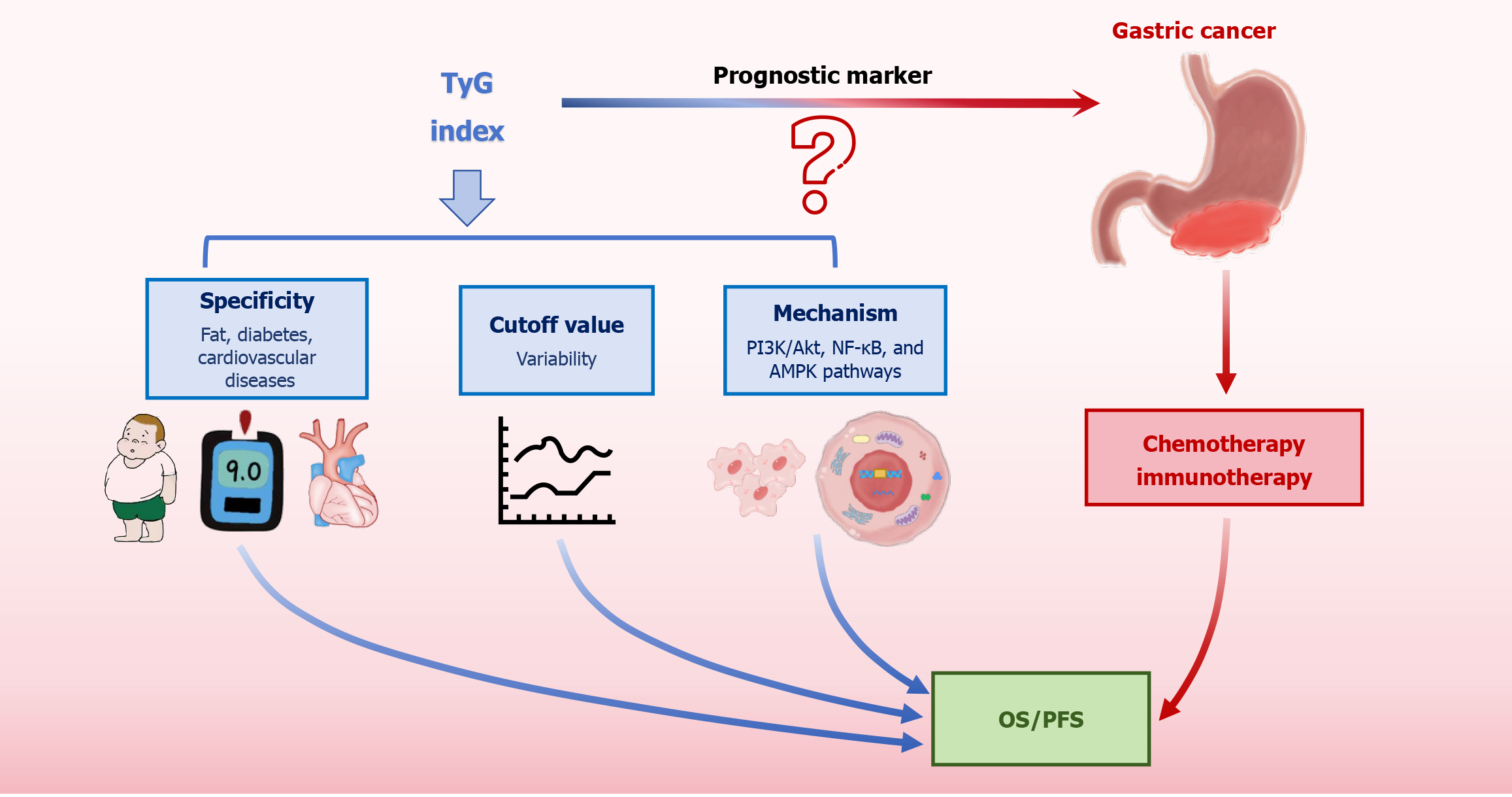Copyright
©The Author(s) 2025.
World J Gastroenterol. May 14, 2025; 31(18): 104525
Published online May 14, 2025. doi: 10.3748/wjg.v31.i18.104525
Published online May 14, 2025. doi: 10.3748/wjg.v31.i18.104525
Figure 1 The triglyceride-glucose index, derived from fasting glucose and triglyceride levels, has emerged as a promising prognostic indicator for gastric cancer.
Insulin resistance (IR) characterized by chronic hyperglycemia and hyperinsulinemia, modulates key signaling pathways including PI3K/Akt, NF-κB, and AMPK. The triglyceride-glucose (TyG) index may serve as an indirect marker of IR through these pathways, thereby playing a crucial role in various gastric cancer (GC) cell processes including proliferation, apoptosis, invasion, and metastasis. Elevated TyG levels have been correlated with improved overall survival and progression-free survival in GC patients. However, several limitations restrict its broader application, including its lack of cancer specificity, inconsistent cutoff values across studies, and the poorly understood mechanisms by which IR influences cancer progression. This article highlights the necessity of a multifactorial approach to enhance prognostic accuracy and guide personalized treatment strategies. Future research is imperative to validate the clinical utility of the TyG index and investigate its integration with other biomarkers to optimize patient outcomes in GC. TyG: Triglyceride-glucose; OS: Overall survival; PFS: Progression-free survival.
- Citation: Zhao YF, Lv JH, Chen DF, Wang ZH, Teng Y, Ntim M, Xia M, Li S, Wang B. Triglyceride-glucose index in predicting gastric cancer prognosis: A need for caution. World J Gastroenterol 2025; 31(18): 104525
- URL: https://www.wjgnet.com/1007-9327/full/v31/i18/104525.htm
- DOI: https://dx.doi.org/10.3748/wjg.v31.i18.104525









